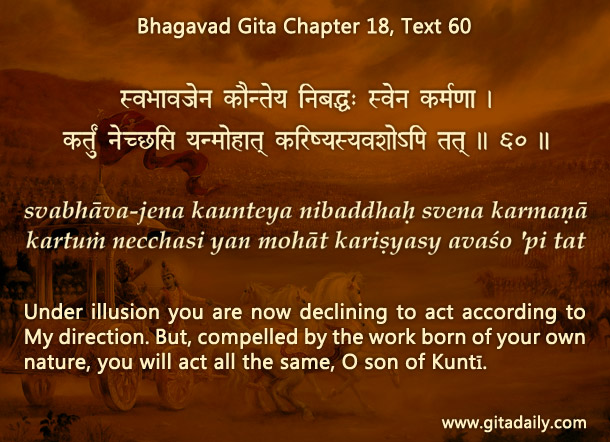When something we are doing goes wrong, our mind often pushes us towards two broad thought-patterns: excusing ourselves and accusing ourselves.
In the first, we become defensive, trying to push the blame on something out there. In the second, we whip ourselves for being lazy, tactless, disorganized and so on – whatever negative labels our critics have affixed on us.
However, neither excusing ourselves nor accusing ourselves is helpful in dealing with the problem. Once we have done the necessary damage minimization, we need to see the problem as an opportunity to learn more about ourselves. The Bhagavad-gita (18.60) indicates that we all need to work according to our psychophysical nature. Based on our nature, we have certain strengths and certain limitations. Rather than blaming ourselves for things we don’t have, we can focus on realizing ourselves – understanding who we are, what we have, what makes us tick and what makes us freeze. Without such basic self-understanding, we will keep bungling into incompatible situations. And we will find our life degenerating into a perpetual firefighting nightmare.
To gain self-understanding, we need to look at ourselves calmly. But we can’t be calm as long as we fear that the next problem will destroy our self-identity and self-worth. Gita wisdom boosts our inner security with its basic teachings: We are essentially spiritual and indestructible; we are precious parts of God; he has blessed us all with gifts by which we can do our parts during our life-journey; we just need to discover and develop those gifts in a devotional mood.
Being thus reassured by Gita wisdom, we can focus on our strengths, put our best foot forward and make our contributions, thereby realizing ourselves – both in terms of actualizing our potentials in this world and experiencing our eternal identity beyond this world.
To know more about this verse, please click on the image
Explanation of article:
Podcast:


Leave A Comment